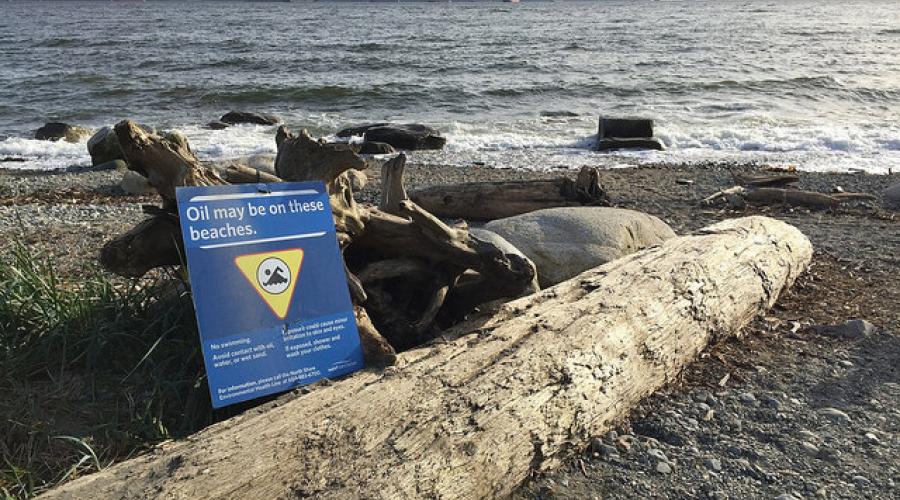
Oil spills pose a threat to marine wildlife and to the livelihoods of coastal communities. In the past several years, Canada has improved its ability to prevent and respond to spills, by passing the Oil Tanker Moratorium Act, amending the Canada Shipping Act, and other ongoing initiatives.
However, recent fuel spills on the BC coast have highlighted the vulnerability of coastal and marine ecosystems to spills, and the serious consequences to coastal people. For instance, Heiltsuk fish and clam harvests remained closed three years after the Nathan E. Stewart sank in their territory on the central coast. And we know from past experiences – such as the 1989 Exxon Valdez oil spill in Alaska – that oil spills can have long-term and chronic impacts on marine populations, and lasting impacts to coastal communities who depend on these for their livelihoods and food.
West Coast is working to make our spill regulations as effective as possible, so we can protect the coast and communities from a devastating spill.
Learn more:
- From the Exxon Valdez to the Marathassa – what have we learned about preventing oil spills?
- Witnessing the Nathan E. Stewart sentencing hearing in Heiltsuk territories
- WCELA Submission on Phase Two Enhancements to Spill Management in BC
Photo credit: Marc Vanderchijs